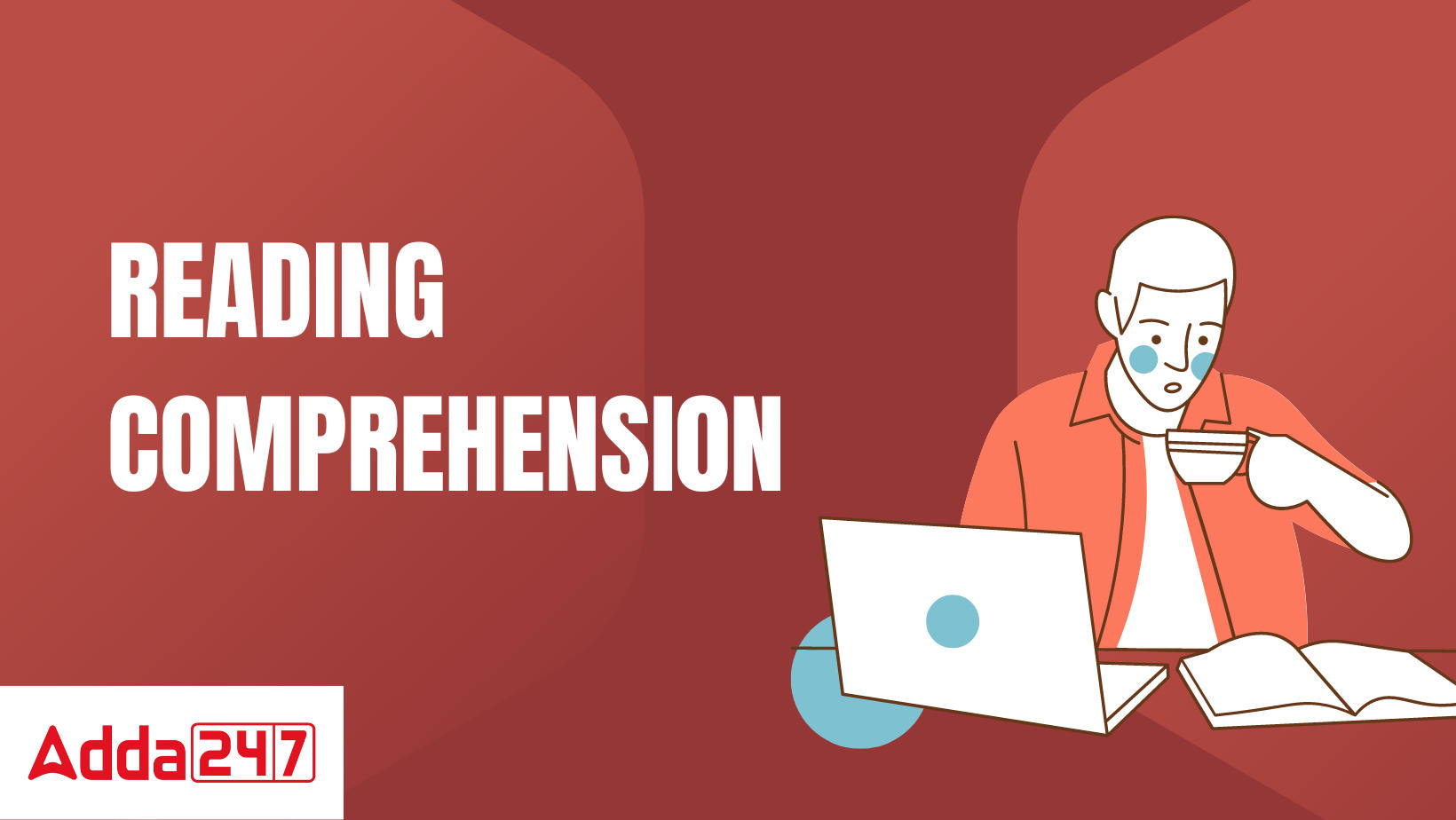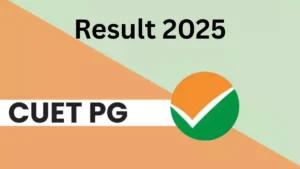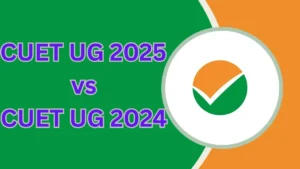Table of Contents
Reading Comprehension
The ability to actively read the offered information, which is typically presented in passages, and assimilate the information to respond to a set of questions is known as reading comprehension (RC).
So, to solve the reading comprehension questions, one must be able to:
- Recognize the main points of the text.
- Respond to questions based on the presented text.
- Create an understanding of the passage’s tenor and tone.
- Understanding what you read is the RC section rule that is most frequently followed. If you have the ability to read quickly, it will be beneficial for you. However, comprehension is always more important than quickness. Here are some suggestions for studying for exams.
Even if the passage’s length or terminology may seem challenging to a candidate, once the applicant begins reading the paragraph, understanding it and providing answers become much simpler.
The passage contains the solutions, which are simple and not tough to find, thus scoring the passage questions is not difficult. To master how to quickly scan the passage and respond to the pertinent questions, candidates must make sure they practise answering comprehension questions repeatedly.
Reading Comprehension- Passage Types
The themes on which the passage may be asked are another, or rather the most important, feature of these questions, in addition to the text’s length, difficulty level, and word usage.
The comprehension question usually involves a recent news item, a topic linked to the competitive exam, or something from another area of life. But it’s important to remember that even if the applicant has a more comprehensive understanding of the subject, his responses should only be based on the details in the paragraph.
A few categories from which to choose a reading comprehension topic are listed below:
- Current Events: The paragraph is primarily drawn from a recent event that has occurred around the world, which may be hype but is now making headlines.
- Economy-Related: Reading passages that discuss economic development or growth of a nation may also be included in the comprehension section.
- Another field from which the passage could be used in the Verbal Ability part is the social sciences.
- Philosophy and psychology: The comprehension may cover these subjects, which would make the subject somewhat challenging for the candidate.
- Imaginary Events: It’s also feasible that the text is based on made-up facts that aren’t necessarily true but are merely made up.
Important Rules to Follow While Answering RC Passages-
- It is crucial to understand the author’s main point.
- Identify the main justifications offered to support that claim.
- Determine the tone of the writing, which may be satirical, inquisitive, courteous, condescending, etc.
- Look for negative conjunctions because these words will unmistakably show that the author’s tone has changed. Therefore, the author’s implication might not be what the introductory remark implies. Examples include However, even though, even though, etc.
- Check to see whether there are any words that cast doubt on the statement of truth, such as negative qualifiers. For instance, it appears, sort of, seems like, etc.
Tips To Answer the Reading Comprehension Questions
Given below are a few tips to answer the reading comprehension questions quicker and more efficiently.
- Reading the Questions First: It is advised that the applicant read the questions before moving on to the passage. This will enable the applicant to identify the solution in less time.
- Don’t Make Any Assumptions: A vital element to remember for reading comprehensions is to avoid making assumptions. The only information that must be used to answer the questions is that which is provided in the passage.
- Answer the questions based on vocabulary first: Questions using antonyms and synonyms and other vocabulary-based concepts might be present. Answer these first because the applicant might not need to read the entire passage to respond. This would help you save time.
- Use the elimination method: Candidates frequently make mistakes in the English portion due to the unclear options provided. If a candidate is unable to respond to the question, they must begin removing possibilities until they arrive at the choice in which they have the greatest confidence.
- Enhance your reading abilities: Instead of reading every word in the comprehension, try focusing on the key words and phrases from the passage. You’ll gain some time savings from this.
- Pay attention to the first and last passages: The passage’s opening and conclusion are its most crucial parts, and they can assist you in answering questions like “Give a relevant topic for the section,” “State the passage’s tone,” and “Summarize the passage.”
Reading Comprehension- Sample Questions
There are various forms in which the questions from a reading comprehension may be asked in the examination. These include:
- A suitable title to the passage
- Giving antonyms or synonyms for a word from the passage
- Determining the tone of the passage
- Assumptions or conclusions based on the passage
- Fill in the blanks with respect to the passage
- Vocabulary-based questions
The above mentioned are just a few types, based on which questions may be asked in the reading comprehension section.
Given below is an example for the reference of candidates:
Passage: Many United States companies have, unfortunately, made the search for legal protection from import competition into a major line of work. Since 1980 the United States International Trade Commission (ITC) has received about 280 complaints alleging damage from imports that benefit foreign governments’ subsidies. Another 340 charge that foreign companies “dumped” their products in the United States at “less than fair value.” Even when no unfair practices are alleged, the simple claim that an industry has been injured by imports is sufficient grounds to seek relief.
Contrary to the general impression, this quest for import relief has hurt more companies than it has helped. As corporations begin to function globally, they develop an intricate web of marketing, production, and research relationships, The complexity of these relationships makes it unlikely that a system of import relief laws will meet the strategic needs of all the units under the same parent company.
Internationalization increases the danger that foreign companies will use import relief laws against the very companies the laws were designed to protect. Suppose a United States-owned company establishes an overseas plant to manufacture a product while its competitor makes the same product in the United States. If the competitor can prove injury from the imports—and that the United States company received a subsidy from a foreign government to build its plant abroad—the United States company’s products will be uncompetitive in the United States, since they would be subject to duties.
Perhaps the most brazen case occurred when the ITC investigated allegations that Canadian companies were injuring the United States salt industry by dumping rock salt, used to de-ice roads. The bizarre aspect of the complaint was that a foreign conglomerate with United States operations was crying for help against a United States company with foreign operations. The “United States” company claiming the injury was a subsidiary of a Dutch conglomerate. In contrast, the “Canadian” companies included a subsidiary of a Chicago firm that was the second-largest domestic producer of rock salt.
Answer the following questions based on the passage given above:
Q 1. Which of the following options is most similar in meaning to the word: “Intricate” mentioned in the article?
- Twisted
- Straightforward
- Simple
- Advance
- Developed
Answer: (1) Twisted
Q 2. What is the full form of ITC as per the passage?
- Imperial Tobacco Company
- International Trade Commission
- Indian Trade Company
- International Trade Corporation
- Indo-Tibetan Corporation
Answer: (2) International Trade Commission
Q 3. Since 1980 the United States ITC has received how many complaints alleging damage from imports that benefit from subsidies by foreign governments?
- 180
- 280
- 340
- None of the above
- Not mentioned in the Passage
Answer: (2) 280
Q 4. As per the passage, which of the following is the second-largest producer of rock salt?
- A subsidiary of a Canadian Firm
- A subsidiary of a Chicago Firm
- A US Firm
- A Subsidiary of a Dutch Conglomerate
- Canadian Firm
Answer: (2) A subsidiary of a Chicago Firm



 CUET PG Result 2025 Soon @exams.nta.ac.i...
CUET PG Result 2025 Soon @exams.nta.ac.i...
 NEET Admit Card 2025 Release Date, How t...
NEET Admit Card 2025 Release Date, How t...
 CUET UG 2025 Vs CUET UG 2024, Check Majo...
CUET UG 2025 Vs CUET UG 2024, Check Majo...










